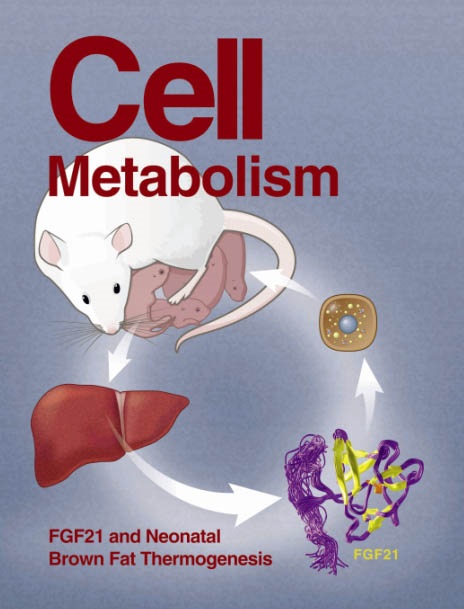GLP-1 改变神经血管结构
IF 30.9
1区 生物学
Q1 CELL BIOLOGY
引用次数: 0
摘要
现成的营养丰富的食物利用了我们过度消费的内在动力,创造了营养过剩的环境。这种变化环境导致了肥胖和代谢综合征等长期存在的健康问题。胰高血糖素样肽-1 受体(GLP-1R)激动剂的开发揭示了我们通过药物控制体重和解决代谢问题的能力。肥胖与慢性低度炎症直接相关,将我们的代谢环境与神经退行性疾病联系在一起。GLP-1R 激动剂通过影响食欲和解决相关的代谢缺陷来抑制肥胖症,并揭示了减肥之外的其他益处。GLP-1R激动剂是直接影响大脑健康,还是通过改善代谢健康间接影响大脑健康,仍有待阐明。在探索肥胖与神经系统疾病之间错综复杂的联系时,最近的文献表明,GLP-1R 激动可能有能力塑造神经血管景观。因此,GLP-1R 激动剂是解决代谢健康与认知健康之间复杂相互作用的一种有前途的策略。本文章由计算机程序翻译,如有差异,请以英文原文为准。
GLP-1 programs the neurovascular landscape
Readily available nutrient-rich foods exploit our inherent drive to overconsume, creating an environment of overnutrition. This transformative setting has led to persistent health issues, such as obesity and metabolic syndrome. The development of glucagon-like peptide-1 receptor (GLP-1R) agonists reveals our ability to pharmacologically manage weight and address metabolic conditions. Obesity is directly linked to chronic low-grade inflammation, connecting our metabolic environment to neurodegenerative diseases. GLP-1R agonism in curbing obesity, achieved by impacting appetite and addressing associated metabolic defects, is revealing additional benefits extending beyond weight loss. Whether GLP-1R agonism directly impacts brain health or does so indirectly through improved metabolic health remains to be elucidated. In exploring the intricate connection between obesity and neurological conditions, recent literature suggests that GLP-1R agonism may have the capacity to shape the neurovascular landscape. Thus, GLP-1R agonism emerges as a promising strategy for addressing the complex interplay between metabolic health and cognitive well-being.
求助全文
通过发布文献求助,成功后即可免费获取论文全文。
去求助
来源期刊

Cell metabolism
生物-内分泌学与代谢
CiteScore
48.60
自引率
1.40%
发文量
173
审稿时长
2.5 months
期刊介绍:
Cell Metabolism is a top research journal established in 2005 that focuses on publishing original and impactful papers in the field of metabolic research.It covers a wide range of topics including diabetes, obesity, cardiovascular biology, aging and stress responses, circadian biology, and many others.
Cell Metabolism aims to contribute to the advancement of metabolic research by providing a platform for the publication and dissemination of high-quality research and thought-provoking articles.
 求助内容:
求助内容: 应助结果提醒方式:
应助结果提醒方式:


